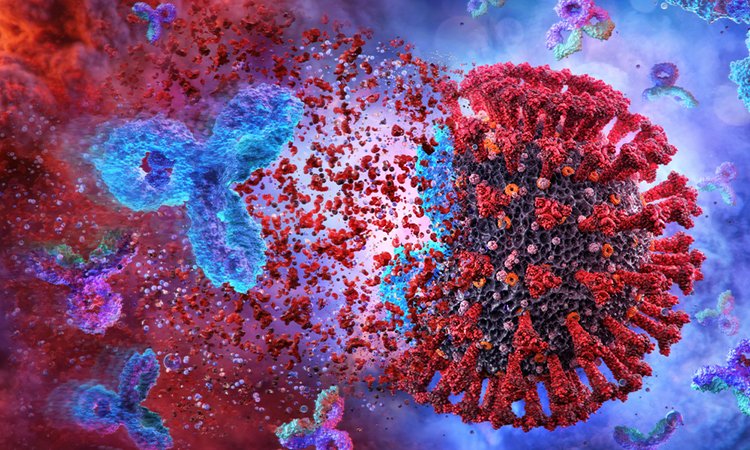Antibodies from recovered COVID-19 patients inhibit SARS-CoV-2 infection in cells
Posted: 28 September 2020 | Victoria Rees (Drug Target Review) | No comments yet
Pre-clinical studies in cells and hamsters have shown that potent antibodies from COVID-19 patients can prevent infection from SARS-CoV-2.


A mix of ultrapotent antibodies from recovered COVID-19 patients has been shown to recognise and inhibit coronavirus infection by preventing SARS-CoV-2 from entering cells. According to the researchers, each of the antibody types performs these overlapping tasks slightly differently.
With regular news updates and feature articles, our COVID-19 hub has everything you need to keep up to date with R&D during the pandemic. Click below to visit:
The scientists, from the University of Washington, US, determined how the antibodies worked on a molecular level through cryo-electron microscopy studies. Besides directly preventing interactions with the host receptor, one of the two discovered antibodies locks the infection machinery in an inactive conformation, meaning it could not fuse with the host membrane on the surface of the cell. If unable to fuse, the coronavirus cannot break in and deliver its RNA to commandeer the cell.
The team highlight that an advantage of antibody cocktails is that they might also prevent the natural mutant forms of the coronavirus that arose during this pandemic to escape treatment. As some variants in the infection machinery have already been discovered, using a mix of antibodies would allow for neutralisation of a broad spectrum of viral variants.
Drug Target Review has just announced the launch of its NEW and EXCLUSIVE report examining the evolution of AI and informatics in drug discovery and development.
In this 63 page in-depth report, experts and researchers explore the key benefits of AI and informatics processes, reveal where the challenges lie for the implementation of AI and how they see the use of these technologies streamlining workflows in the future.
Also featured are exclusive interviews with leading scientists from AstraZeneca, Auransa, PolarisQB and Chalmers University of Technology.
“We believe that leveraging multiple, distinct, complementary mechanisms of action could provide additional benefits for clinical applications,” the researchers noted.
In addition to preventing virus entry into host cells, the researchers say the presence of the antibodies also appears to set off the infection-fighting actions of other immune cells, which arrive to clear out the virus.
The team also report that low doses of these antibodies, individually or as a cocktail, protected hamsters from infection when exposed to COVID-19 by preventing it from replicating in their lungs.
“Our results pave the way to implement antibody cocktails for prophylaxis or therapy that might have the advantage of circumventing or limiting the emergence of viral escape mutants,” the researchers noted. However, they emphasise that the antibody cocktail in their study needs to undergo trials in humans to determine safety and effectiveness.
The findings are published in Science.
Related topics
Antibodies, Antibody Discovery, Biopharmaceuticals, Drug Development, Drug Targets, Protein, Proteomics, Targets
Related conditions
Covid-19
Related organisations
Washington University



